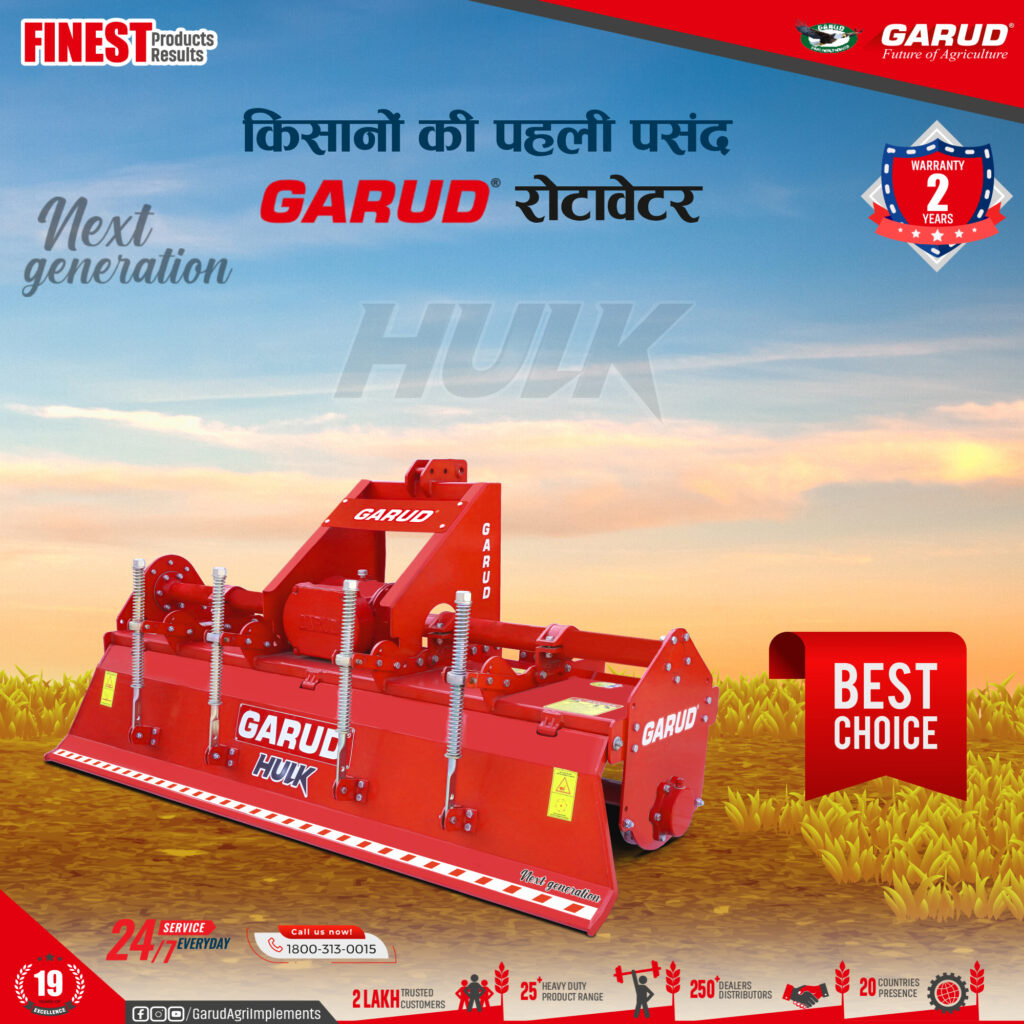Farmers and Their Agricultural implements: Making the Impossible Possible!
March 26, 2025Essential Agriculture Tools for Modern Farming
March 31, 2025What is a Rotavator?
A rotavator, also known as a rotary tiller or power tiller, is an essential agricultural machine used for soil preparation. It is designed to break up, churn, and aerate the soil, making it ideal for farming, gardening, and landscaping. Rotary tiller for tractors are widely used in modern agriculture to enhance soil quality and improve crop yield.

Benefits of Using a Rotavator
- Efficient Soil Preparation – A Rotary tiller loosens compacted soil, improving aeration and drainage.
- Time-Saving – Compared to manual tilling, a Rotary tiller https://www.youtube.com/@GarudAgriImplements completes soil preparation quickly and efficiently.
- Enhanced Crop Growth – By mixing organic matter and fertilizers into the soil, it enhances soil fertility.
- Versatility – Suitable for various terrains, including sandy, loamy, and clay soils.
- Cost-Effective – Reduces labor costs and enhances farm productivity.
- Weed Control – Helps in controlling weed growth by turning the soil over and burying unwanted vegetation.
- Reduced Soil Erosion – Ensures even soil distribution, preventing erosion and improving moisture retention.
Types of Rotavators
- Mini Rotavator – Best for small gardens, orchards, and horticultural applications.
- Medium-Duty Rotary tiller – Suitable for small to medium-sized farms and plantations.
- Heavy-Duty Rotary tiller – Designed for large-scale farming, commercial agriculture, and tough soil conditions.
How to Choose the Right Rotary tiller ?
When selecting a Rotary tiller for tractor, consider the following:
- Tractor Compatibility – Ensure that the horsepower (HP) of your tractor matches the rotavator’s requirements.
- Blade Type – Choose between L-type, C-type, or J-type blades based on soil type and tilling depth.
- Working Width – A wider rotavator covers more ground, increasing efficiency.
- Durability & Build Quality – opt for a robust frame with high-quality steel blades.
- Tilling Depth – Check the adjustable depth feature to suit different farming needs.
Maintenance Tips for Longevity
- Regularly check and lubricate moving parts.
- Inspect blades for wear and replace them when necessary.
- Clean the rotavator after use to prevent soil buildup.
- Store it in a dry place to avoid rusting.
- Check for loose nuts and bolts before each use to ensure safe operation.
- Use genuine spare parts for repairs to maintain performance and longevity.
Conclusion
A rotary tiller machine is an invaluable tool for farmers and gardeners looking to improve soil quality and enhance crop yields. Choosing the right Rotary tiller for agriculture can boost efficiency, save labor costs, and ensure a successful harvest. Investing in a high-quality rotavator ensures long-term benefits, improved soil health, and better crop productivity.
